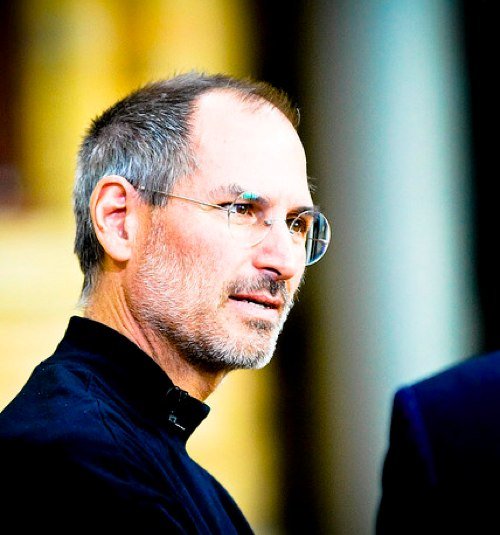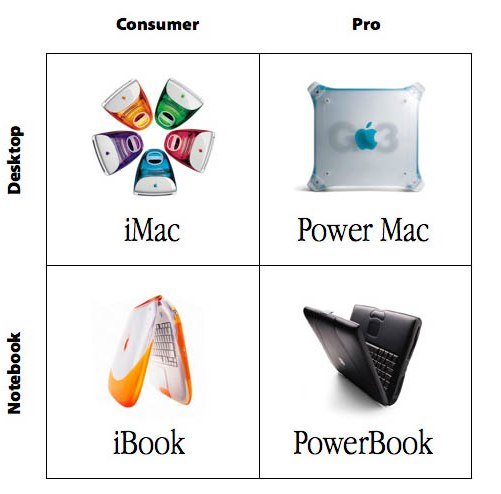The book about the biography of Steve Jobs has long been a bestseller among all his fans (and there are many of them). English-speaking readers are more fortunate, since we will be able to read the book in Russian only from November 15th, while the rest of the world has been reading it in English since October 24th.
We will consider this a small spoiler to the book for those who have not yet had time to read it in English. The founder and editor of ReadWriteWeb, Richard McManus, wrote a short article about his impression of the book and about the three main whales of Steve Jobs.

©photo
Unfortunately, the actions of geniuses are almost unique, and it is impossible to think like them. We can only listen to them, read and learn. I think this book will be useful to anyone who wants to achieve success in the development of their business, whether it's selling computers or creating something fundamentally new. Even during his lifetime, Jobs' speeches were sorted into quotes. This person was able not only to give a new look at familiar things, to show that going beyond the usual is not scary at all and that just the most interesting thing is beyond these limits. He was able to convey this to the masses as simply as if he explained it to everyone personally, in a simple and relaxed manner.
One of the factors of Steve Jobs' success was his fascination with Buddhism and Zen. Even in his youth, he traveled a lot in India and was fond of Oriental culture. The book explains how these hobbies led to his core business philosophy.
Steve Jobs relied entirely on his intuition. He once said that he was beginning to realize that intuitive understanding and awareness were more important than intellectual logical analysis. Jobs also considered intuition to be much more important in decision-making than intelligence. And it had a huge impact on all his work.
This is clearly seen when, in 2005, Jobs thought about the product that should be next after the iPod. He wanted to create a device that would eat all the other phones for lunch. The digital camera market was significantly undermined by the fact that digital cameras appeared in phones. He was afraid of exactly the same fate for the iPod, if music players were also built into the phones.
At the exit, the world got an iPhone.
The book also describes in detail how Jobs' Zen practice helped him develop a love of simplicity in design, for which many appreciate Apple products. This practice helped him hone his ability to listen to intuition, filter out everything superfluous and distracting, and brought up in him a sense of aesthetic minimalism.
The second main whale of Steve Jobs was a passion for reinnovations. After he returned to Apple in 1997, Steve and Mike Marculla (CEO of Apple 1981-1983) began to actively discuss the further development of the company.
Using the example of Hewlett-Packard, which started as a company producing tools, then calculators, and then computers, they decided that they could do something similar with Apple. Markulla told Jobs that he had to go through a metamorphosis like a butterfly — invent more and more new things that the company can create.
As a result, this led to the emergence of the iPod, iTunes, iPhone and everything else that Apple created in the 2000s.
One of the interesting facts described in the book was that the iPad was designed earlier than the iPhone. At that time, the touchscreen display was the biggest innovation and the development of the tablet was put aside, releasing the phone to the fore. They considered this project more important, and therefore postponed the development of the iPad, and the touch screen was adjusted to the size of the iPhone.
Steve Jobs' intuition helped his company regain its position in many industries - personal computers, animated films, music, phones, tablets, digital publishing and retail stores. Apple was able to achieve all this thanks to Jobs' focus on the basics and his decisive leadership.
One of Steve's greatest strengths was his ability to focus. «The ability to decide what not to do is just as important as deciding what to do!» — Jobs counted. This is true for both companies and products.
Returning to Apple in 1997, Jobs decided to reduce the bloated line of computers from 40 to 4. He took a marker and drew a square on the board, divided into four parts. Above the top two squares he wrote Consumer and Pro, on the left side he wrote Desktop and Portable. And the company's job, according to Jobs, was to make four perfect products for each square.

Another part of Steve Jobs' brilliant leadership was the ability to create an ideal organizational structure around himself. As a result, all decision-makers were just two steps away from Jobs. He also implemented and implemented a culture of accountability throughout the company.
Steve Jobs was not an ideal leader and a man of the kindest soul. Many employees could not stand his tyranny and left the company. He also, like everyone else, made mistakes. But no matter what the critics say, it still does not negate what he was able to do in a fairly short period of time to turn some people's lives upside down and drastically change their understanding of the world.
There are so many brilliant people around us who do wonderful things and discoveries, but all this remains hidden from us due to the fact that they simply do not know how to present it all correctly. Therefore, the fourth point of what you should learn from Steve Jobs, I would call his ability to speak and present not only new Apple products, but also himself.